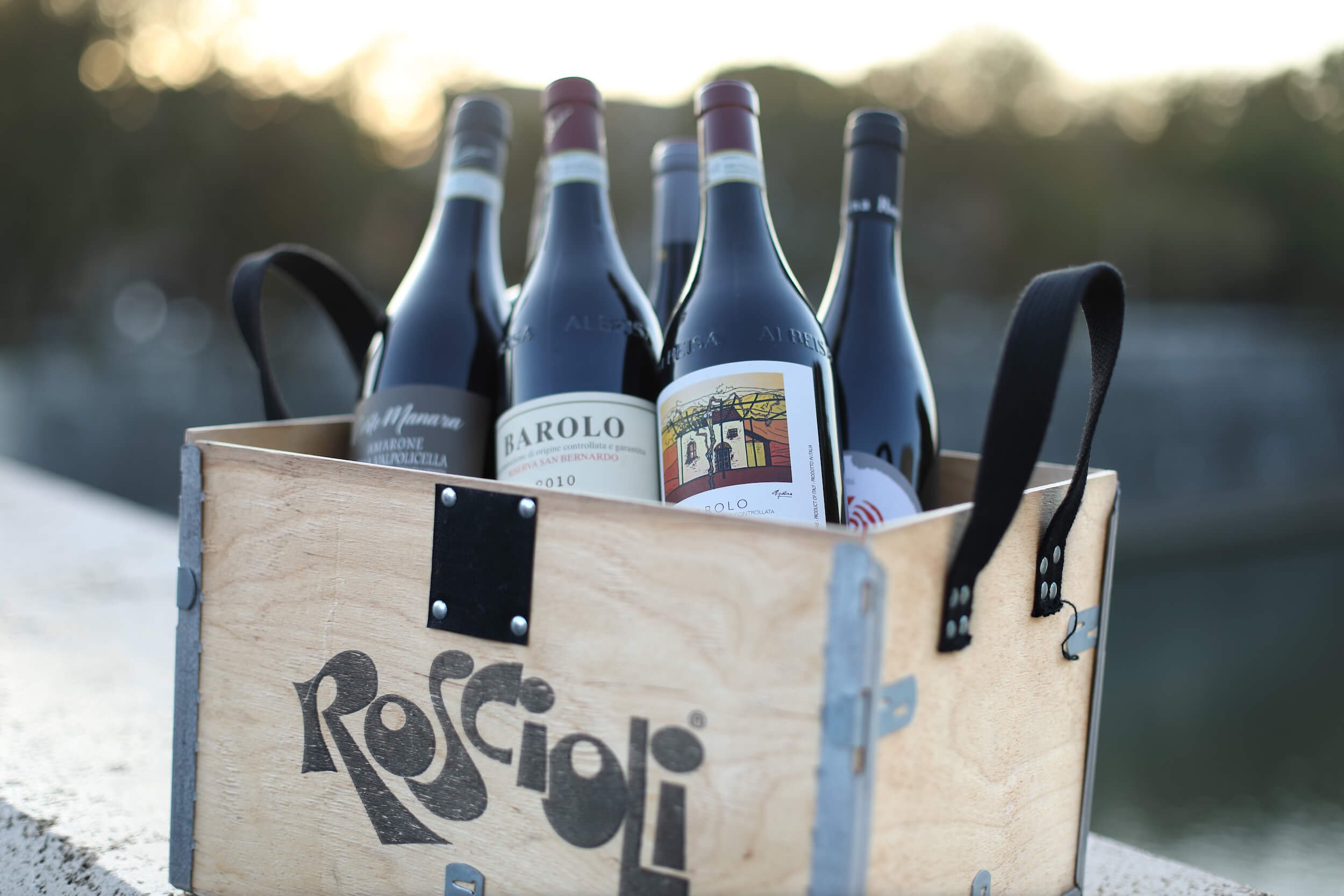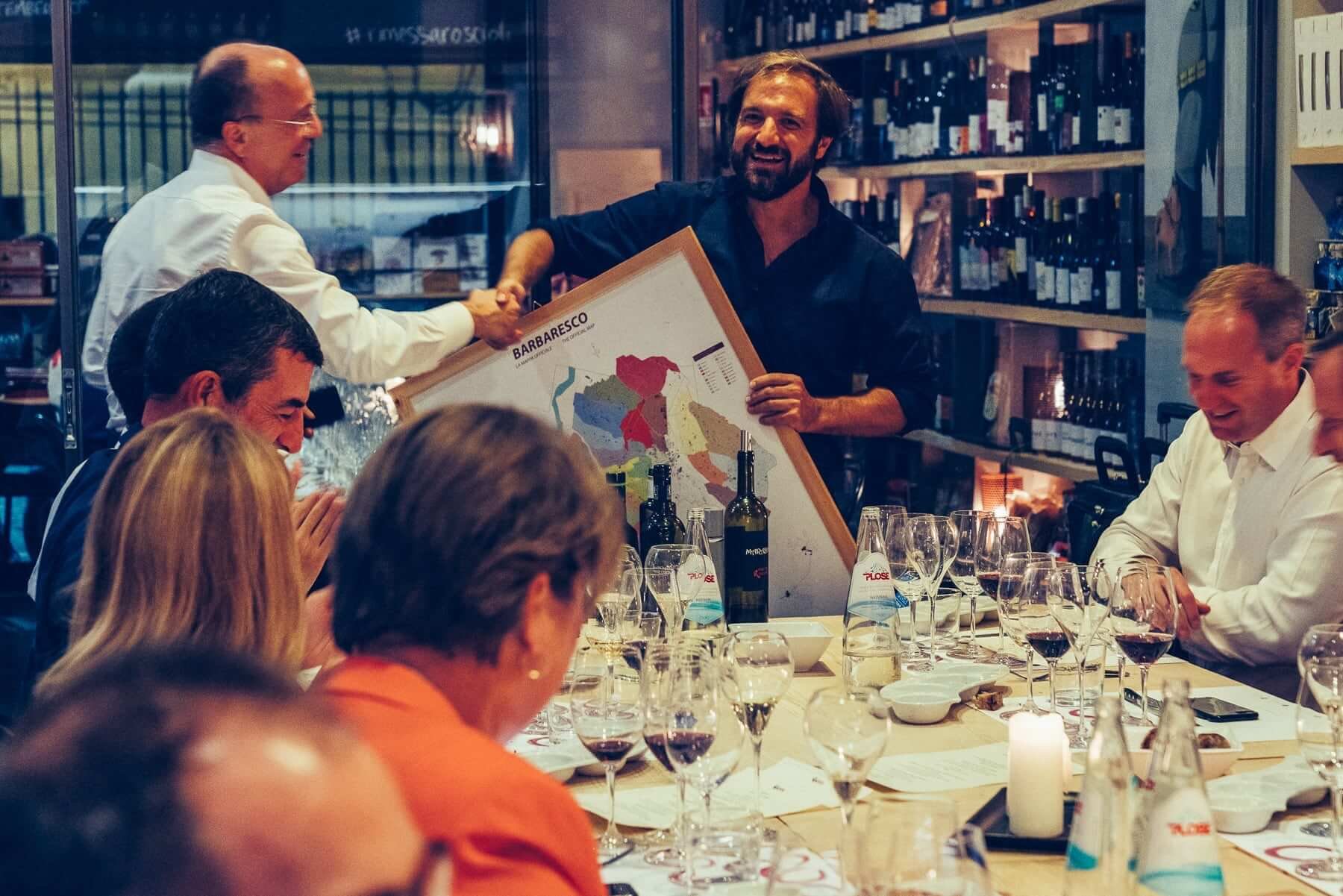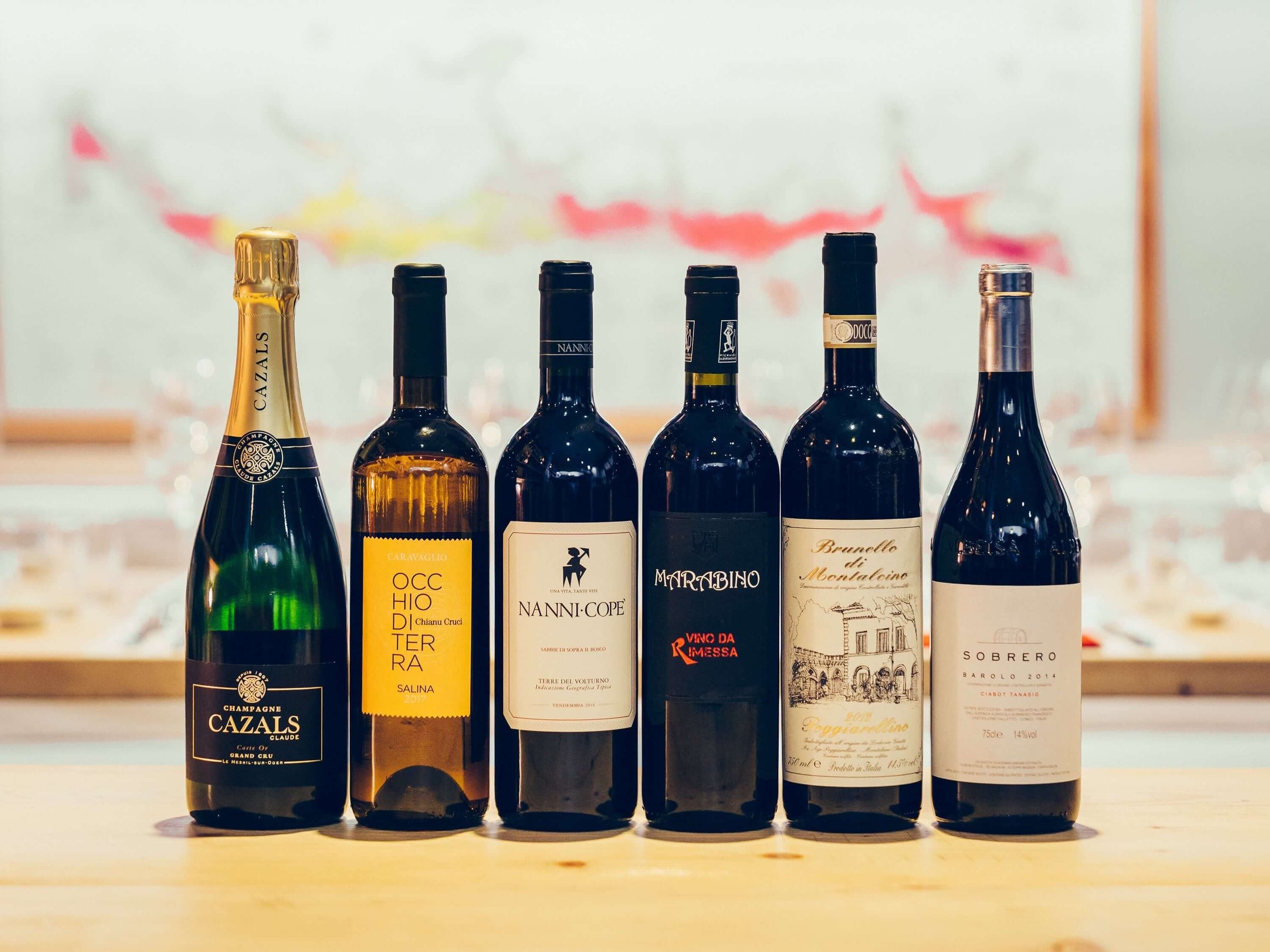How Rome’s Iconic Rimessa Roscioli Is Bringing Italian Wines to the US
Editor’s note: While we don’t normally cover wine clubs, this one highlights a way that smaller producers can ensure sales and start building brand awareness in a completely new market.
Founded as a bakery in 1972, Roscioli is a Roman salumeria and restaurant in the heart of the Campo de’ Fiori, famed for its iconic, Roman dishes such as stewed artichokes and cacio e pepe. Rimessa Roscioli is a wine bar and tasting experience down the street, the brainchild of sommelier Alessandro Pepe, (with encouragement by none other than Anthony Bourdain,) as an offshoot of Roscioli. “I created Rimessa Roscioli based on a synthesis of all the things I used to look for on a night out,” says Pepe, “To be with my friends, meet new friends, taste good wines and food, share that pleasure with other people, have a cultural experience, and to look for the unexpected.” The term “rimessa” in Italian has several connotations, but in the context of creating a unique, intimate space with a clubhouse feel for exceptional wine pairing experiences for those who would go looking for them in an unconventional setting, the definition of “garage,” seems the most fitting.
Roscioli Wine Club is an extension of that garage club feel, and is what transpired when an American wine expert, Lindsay Gabbard, fell in love with the Rimessa Roscioli experience, (and with Alessandro,) and became determined to make those wines and the richness of their stories available to the American drinking public. “For me it was an absolute no-brainer,” she says. “I needed to get these wines to the US somehow.”
A Different Kind of Wine Club
Thus Roscioli Wine Club was born, though Gabbard insists it is much more than just a club, not only because of the caliber and exclusivity of the wines that are available to members, but in the brand’s very ethos. “These aren’t leftover wines. Ours are exclusive bottles just for members,” she says, having felt that her previous experience with wine clubs in the U.S. left her cold, with bottles that didn’t always represent thoughtfully curated wines. Moreover, she felt other clubs felt impersonal, and lacked the sense of community and storytelling that she had enjoyed during her Rimessa Roscioli tasting experience. So for the Roscioli Wine Club, it’s about recreating that experience; “it’s about, how do we create networks of people and communities?” says Gabbard.
To that point, many of Roscioli Wine Club’s now 1600 members came directly from travelers who had visited Rimessa Roscioli in Rome and were similarly blown away by their tasting experience, wanting to have access to the same kinds of exceptional, small producer Italian wines with rich stories. Regardless of whether any member has experienced Rimessa Roscioli before, however, in order to encourage and foster a sense of actual community, even through an online wine club, all members are entitled to a free dinner and tasting experience at Rimessa Roscioli, should they have the opportunity to visit Rome. Members also have access to pop-ups in the U.S.
All 3 membership tiers include shipments of 12 wines, twice a year. The basic tier includes bottles from artisan producers averaging 30 euros per bottle, with the highest, Collector Club tier featuring wines upward of 150 euros per bottle.
Italian Wines with Stories
“Wine without a story to tell is just fruit juice with alcohol,” says Pepe. In having relationships with over 600 artisan producers across Italy, “many of the labels we carry are exclusive to the restaurant,” he says, including certain avant-garde wines that are made in collaboration between Rimessa Roscioli and various winemakers throughout Italy. Over 90% of the bottles poured at Rimessa Roscioli, and offered to club makers, are made by wineries that produce fewer than 40,000 bottles annually, or in some cases, much less. “But I don’t want to have a label just for me,” says Pepe. The ability to share more than just the wines themselves, but also the stories of the people who make them and of Italy’s diverse regions and grapes, is a driving force of the Roscioli model. “We wanted to bring members into the vineyards, somehow,” says Gabbard, “so they could feel like they were in Italy, and actually understand where these wines come from.”
Pepe and Gabbard have personally visited each of the wineries whose wines they pour at the tasting experience, and subsequently ship to club members, collecting content about the wines quite literally from the fields. Each bottle contains a QR code which links to videos so that members may hear the stories of the wines they receive directly from the people who made them, following the winemaker throughout their vineyards or winery, giving context and nuance to what follows in the glass. To put in perspective the artisan scope of some of the wineries included, a visit to Cantina Falcone for example, a maker of natural wines showcasing the Cesanese grape, showed a cellaring facility that can best be summarized by the word “shed.”
Up Next for Roscioli
In keeping with the mindset of being a different kind of wine club, Pepe and Gabbard have recently purchased several vineyards in order to continue in a spirit of collaboration with winemakers, making wines that are literally only available to their members, and often from lands that were in danger to being sold off to corporate entities. In owning their own vineyard spaces, Roscioli is also able to offer even more bespoke experiences available to those who join, including vineyard stays.
Sustainability initiatives are also on the forefront, with an effort to ship the wines to the US via sailboat. “We tried it last year with 10% of the shipments,” says Pepe. “By 2024 it’s going to be completely by sailboat.”
Finally, in more good news for club members, Roscioli, as well as an offshoot of Rimessa Roscioli, will be opening in New York City’s Soho neighborhood in the spring of 2023, allowing members to connect with each other, plus even more exceptional Italian wines, that much closer to home.



